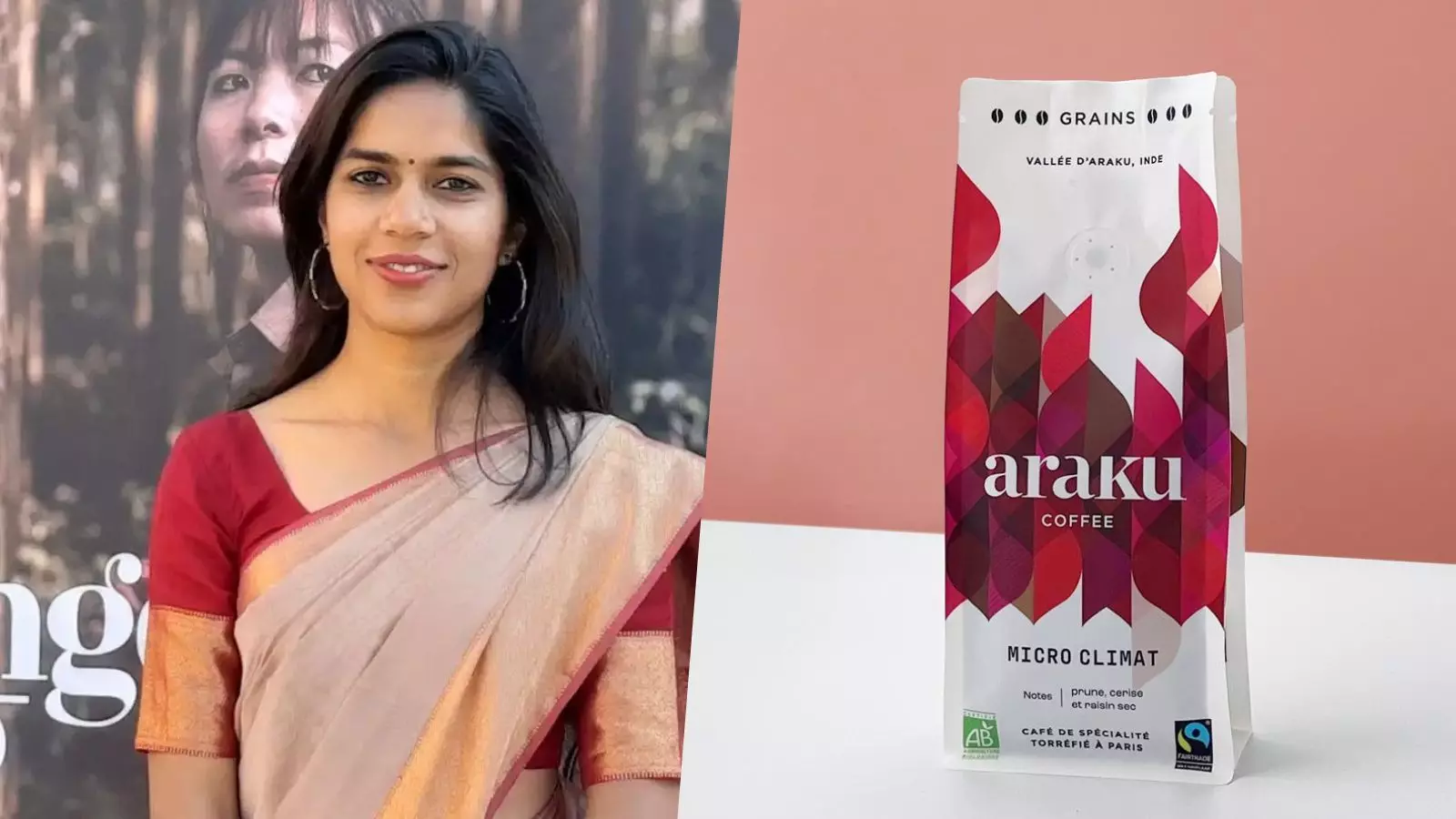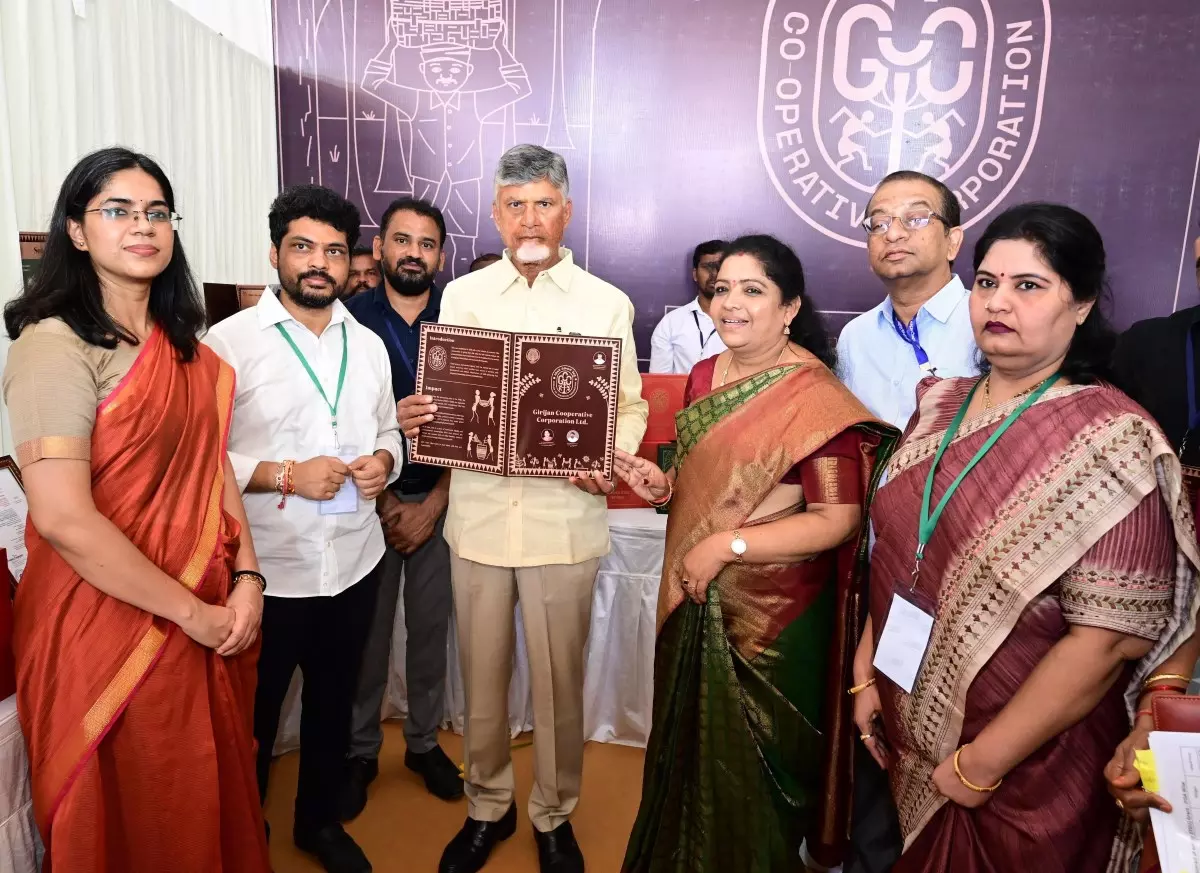
- Home
- India
- World
- Premium
- THE FEDERAL SPECIAL
- Analysis
- States
- Perspective
- Videos
- Sports
- Education
- Entertainment
- Elections
- Features
- Health
- Business
- Series
- In memoriam: Sheikh Mujibur Rahman
- Bishnoi's Men
- NEET TANGLE
- Economy Series
- Earth Day
- Kashmir’s Frozen Turbulence
- India@75
- The legend of Ramjanmabhoomi
- Liberalisation@30
- How to tame a dragon
- Celebrating biodiversity
- Farm Matters
- 50 days of solitude
- Bringing Migrants Home
- Budget 2020
- Jharkhand Votes
- The Federal Investigates
- The Federal Impact
- Vanishing Sand
- Gandhi @ 150
- Andhra Today
- Field report
- Operation Gulmarg
- Pandemic @1 Mn in India
- The Federal Year-End
- The Zero Year
- Science
- Brand studio
- Newsletter
- Elections 2024
- Events
Araku coffee: How Andhra Pradesh govt, tribal farmers are taking organic beans global
In Araku Valley, ‘the Ooty of Andhra Pradesh,’ tribal farmers nurture coffee cherries beneath silver oaks. Now, through MoUs with Tata Consumer Products and Starbucks, Araku coffee is set to go global

In the emerald folds of the Eastern Ghats lies Araku Valley, a picturesque hill station in Andhra Pradesh, often called the “Ooty of Andhra Pradesh”. Here, rolling coffee plantations drape the slopes like a green quilt, tribal traditions define village life, and the air is perfumed with wildflowers and the faint spice of fresh coffee cherries. Known for its rich tribal culture and...
In the emerald folds of the Eastern Ghats lies Araku Valley, a picturesque hill station in Andhra Pradesh, often called the “Ooty of Andhra Pradesh”. Here, rolling coffee plantations drape the slopes like a green quilt, tribal traditions define village life, and the air is perfumed with wildflowers and the faint spice of fresh coffee cherries. Known for its rich tribal culture and natural beauty, Araku is a sough-after destination among travellers. It’s also a ‘coffee country’, so to speak.
In this land, the day begins with the clink of tin mugs and the soft rustle of coffee leaves in the morning breeze. For generations, tribal farmers have nurtured their crops under the shade of silver oaks, using time-honoured methods passed down through their generations. Each crimson cherry they pluck is a fragment of their heritage, a promise to the next generation.
For decades, these farmers cultivated coffee the way their parents and grandparents had — shaded by silver oaks, enriched by fallen leaves, and untouched by the harsh chemicals that colour so much of modern agriculture. They sold their beans locally, unaware that their unique flavour profile could captivate coffee connoisseurs halfway across the world. Today, that is changing.
Araku coffee, grown in the mist-kissed hills of the Alluri Sitarama Raju district, is set to make its presence felt in faraway continents. The Andhra Pradesh government, with an eye on branding organic Araku coffee and taking it to both domestic and international markets, has entered into a Memorandum of Understanding (MoU) with Tata Consumer Products, the consumer goods company part of the Tata Group. In parallel, discussions are underway with the globally renowned American coffee giant, Starbucks, to ensure that Araku coffee earns its place on their celebrated menu.
No matter how crowded the coffee shelves may be, the flavour of Araku coffee stands apart. Cultivated in the high-altitude plantations of Alluri Sitarama Raju district, this coffee has a distinctive taste unlike any other variety. Its rich flavour and aroma have won it a loyal following, ensuring that the demand for it remains consistently high. And now, for the first time, Araku coffee is preparing to enchant international palates.

The Andhra Pradesh government, through the Girijan Cooperative Corporation, has signed several MoUs with prominent companies. ‘The taste of Araku coffee is unlike any other, and that uniqueness is its strength,’ says Kalpana Kumari, GCC MD.
To realise this ambition, the Andhra Pradesh government, through the Girijan Cooperative Corporation (GCC), has recently signed several MoUs with prominent companies. This move will soon see Araku coffee entering the international market, paving a smooth road towards worldwide recognition.
Across all eleven mandals of Alluri Sitarama Raju district, coffee cultivation thrives. Spread over an impressive 2.58 lakh acres, these coffee plantations are nurtured by tribal farmers using age-old, traditional agricultural methods. Together, they produce around 18,000 tonnes of coffee beans every year.
Also red: How climate change, tourism, and human greed push Uttarkashi towards disaster
For farmers like T. Ramamma, a widowed tribal woman from the valley, coffee is her ticket to a better life. “Every time they soak their lungs in the rich aroma, they are transported to my backyard in the misty Araku valley,” she told a national daily recently. Ramamma now earns over Rs 6 lakh a year from her plantation far more than the typical Andhra farmer with the same landholding. She is not alone. Widow Gemali Kamala, also from the valley, supports her household solely through coffee cultivation. They are among over 2.3 lakh tribal farmers whose livelihoods have been transformed by the bean.
The rising global appetite for organic produce has prompted GCC officials to encourage these farmers to shift to organic coffee cultivation. This method excludes all chemical fertilisers and pesticides, ensuring a purer product. Presently, in Chintapalli mandal, 884.55 hectares are under organic coffee cultivation, while in GK Veedhi mandal, the figure stands at 1,374 hectares — together worked on by 2,600 tribal farmers.
The certification process for organic coffee is rigorous: farmers must avoid the use of any chemical inputs for three years, after which, in the fourth year, they become eligible for organic certification. This certification is issued by the Mumbai-based FoodCert, under the authority of the Agricultural and Processed Food Products Export Development Authority (APEDA).
For the 2024-25 season, GCC is purchasing organic coffee beans at Rs 330 per kilo, while non-organic beans fetch Rs 250 per kilo. Responding to rising international demand, GCC has decided to significantly expand organic coffee cultivation in Araku. Beyond the existing production, the plan is to bring an additional 6,000 hectares under organic cultivation in the next four years.
The demand for organic Araku coffee is already strong within India, and its appeal abroad is expected to be even greater. Recognising this potential, GCC has partnered with Tata Consumer Products through an MoU. Under this agreement, GCC will supply ten tonnes of certified organic instant Araku coffee — specifically Arabica Cherry Clean Coffee — this year alone.
Tata will pay Rs 900 per kilo for the fully processed organic beans, a price that is expected to bring tangible benefits to the farmers. Moving forward, GCC will steadily increase its supply to Tata, which will in turn undertake branding for both domestic and global markets. This collaboration is poised to make the Araku coffee name resonate across the world.

‘We will set up retail showrooms and kiosks across the country to bring this coffee to every corner of the nation,’ Chief Minister N. Chandrababu Naidu said while speaking at a recent event marking Adivasi Day.
In another landmark move, GCC has signed an MoU with Haathi Services LLC, a cross-border e-commerce platform designed to empower brands and retailers to expand globally. Through this partnership, Araku coffee will be introduced into the menus of Starbucks outlets in the United States — a milestone in its journey from tribal farms to cosmopolitan cafés.
Beyond Starbucks, Haathi Services will ensure that Araku coffee reaches the American retail market, other international destinations, and select outlets within India. The company also plans to set up dedicated kiosks under the Araku Coffee brand, making the product more accessible to consumers everywhere.
Also read: How Dharmasthala, Karnataka’s temple town, struggles to shake off its shame
Chief Minister N. Chandrababu Naidu, speaking at a recent event marking Adivasi Day, emphasised the importance of this endeavour: “Araku coffee must gain global recognition. We are working with public and private sector companies to market tribal and forest-based products, including Araku coffee, both in India and abroad. We will set up retail showrooms and kiosks across the country to bring this coffee to every corner of the nation.”
Kalpana Kumari, Managing Director of GCC, underlined the broader goal in an interview with The Federal Andhra Pradesh: “The taste of Araku coffee is unlike any other, and that uniqueness is its strength. We are delighted it is entering the international market. We have signed MoUs with Tata Consumers and Haathi Services, and these will be implemented immediately. Our first step will be to supply Tata with ten tonnes of organic coffee, increasing quantities gradually. Our mission at GCC is to strengthen the organisation, bring tangible benefits to tribal farmers, and improve their living standards.”
With these agreements in place, Araku coffee’s journey from the lush, rain-washed hills of Andhra Pradesh to the polished counters of global coffee chains is well underway. Its distinctive aroma and flavour are set to become a proud ambassador not only for the tribal farmers who cultivate it but also for the rich agricultural heritage of the region.